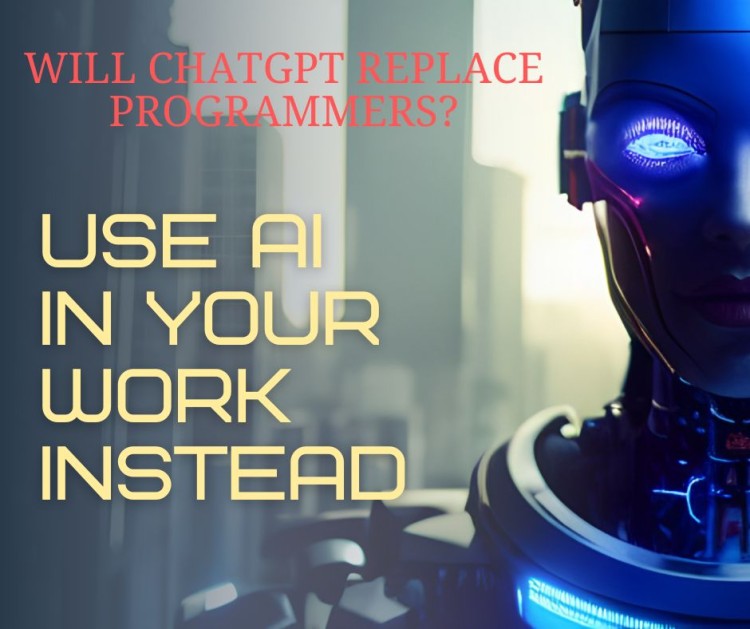Will ChatGPT Replace Programmers?

In recent years, the field of artificial intelligence has been advancing at an astonishing pace, leading to transformative changes in various industries. Among these advancements, ChatGPT, a conversational AI model developed by OpenAI, has garnered significant attention for its remarkable ability to engage in natural language conversations. While some concerns have arisen about the potential replacement of programmers by such advanced AI, a closer examination reveals that ChatGPT can actually complement and enhance the role of programmers, leading to a synergistic future rather than outright replacement.
Augmenting Creativity, Not Replacing It
Programmers are the architects of technology, and their creativity, problem-solving skills, and domain expertise are crucial for developing robust and innovative solutions. ChatGPT, despite its remarkable capabilities, lacks the intrinsic understanding of complex business logic, nuanced problem domains, and ethical considerations that programmers bring to the table. Instead of replacing programmers, ChatGPT can serve as a valuable tool to assist them in brainstorming, generating code snippets, and exploring different approaches to solving challenges.
Enhancing Efficiency and Speed
Programming tasks often involve repetitive and time-consuming activities, such as writing boilerplate code, debugging, and documentation. ChatGPT can significantly enhance the efficiency of programmers by automating such routine tasks. This allows programmers to focus on high-level design, critical thinking, and creating elegant solutions that truly address the needs of users and clients. By delegating mundane tasks to ChatGPT, programmers can allocate more time to innovation and creativity.
Enabling Communication with Non-Technical Stakeholders
One of the challenges programmers often face is effectively communicating complex technical concepts to non-technical stakeholders, such as clients, managers, or users. ChatGPT's natural language capabilities can bridge this communication gap by generating clear and concise explanations of technical concepts. This facilitates smoother collaboration, better understanding, and more informed decision-making among diverse teams.
Empowering Rapid Prototyping
Rapid prototyping is an essential phase in software development, allowing programmers to quickly iterate and test ideas. ChatGPT can accelerate this process by generating prototype code snippets based on high-level descriptions provided by programmers. This speeds up the development cycle and enables programmers to explore multiple design options swiftly, without compromising the quality of the final product.
Ethical and Social Considerations
As AI technology continues to evolve, ethical considerations become increasingly important. Programmers play a vital role in ensuring that AI systems are designed, trained, and deployed responsibly. ChatGPT itself is a tool created by programmers to be used in a responsible manner. Its responses are generated based on patterns in the data it was trained on, which means it can inadvertently produce biased, inaccurate, or inappropriate content. Programmers are essential in fine-tuning and guiding ChatGPT's behavior to align with ethical standards and social norms.
In conclusion, rather than replacing programmers, ChatGPT has the potential to enhance their capabilities and create a more collaborative and productive environment. By automating routine tasks, aiding in communication, and facilitating rapid prototyping, ChatGPT can amplify the creative and problem-solving skills that programmers bring to the table. As technology evolves, the role of programmers will continue to evolve alongside it, adapting to the changing landscape and leveraging AI tools like ChatGPT to build a more innovative future.
Add new comment
- 159 views
